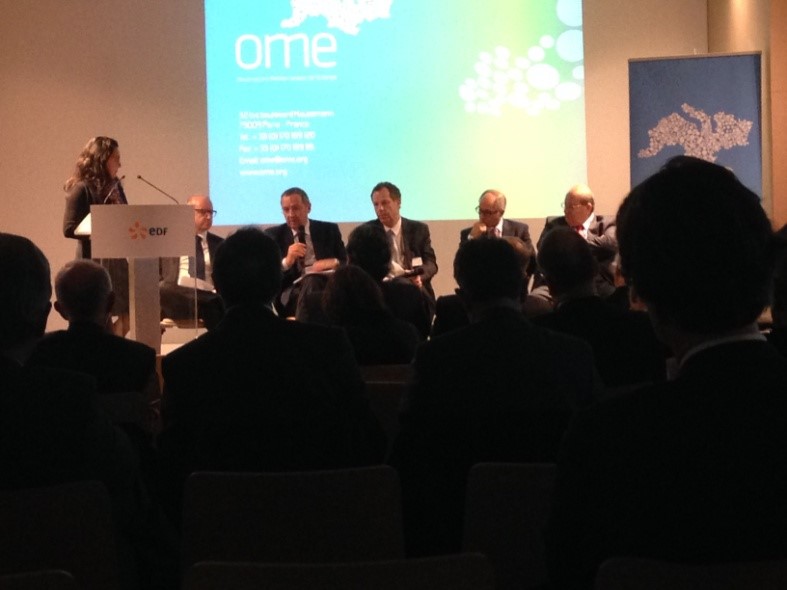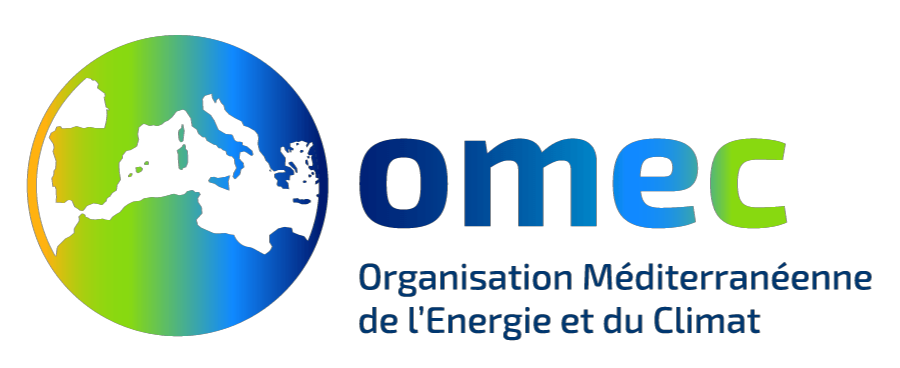
The Mediterranean can strengthen its energy security and substantially reduce its carbon print if action is taken now
9th December 2015, Paris – Bruno Lescoeur, Chairman, launched OME’s flagship publication Mediterranean Energy Perspectives 2015 (MEP 2015) at EdF headquarters in Paris.
MEP 2015 is the third publication of MEP series and provides up-to-date information on the energy situation in the Mediterranean region today and outlook over 25 years.
Expected trajectories for energy demand in the region are contrasted across the two shores of the Mediterranean. North Mediterranean countries account for two-thirds of primary energy demand and have already embarked upon a transition path with substantial levels of renewables and effective demand-side management and this trend is set to continue. The South Mediterranean, on the other hand, experiences sustained economic and population growths and by the end of the outlook period, the South Mediterranean energy demand would more than double (its electricity demand would triple) and will thus have exceeded that of the North.
Under an alternative Scenario – the Proactive Scenario – which assumes a push for renewables and an increased implementation of energy efficiency measures, over 20% of energy savings could be achieved and up to 760 TWh could be spared. Renewable sources will break-through, especially in the power generation sector representing from 47% to 68% of total installed capacity in 2040 (up from 34% today). Solar and wind will be the fastest growing technologies.
While Mediterranean energy demand is, and will remain, heavily dependent on fossil fuels, efficiency measures and further deployment of renewable sources could bring the import dependence of the region down to less than a quarter of the energy mix, from 40% today. Sparing fossil fuels in favour of renewable sources would enable South producing countries to significantly increase their exports and associated revenues.
On the related CO2 emissions, current trends would lead to a critical rise in carbon emissions (+45%) putting further strain on the environment by 2040; a more efficient and green path would spare over 750 Mt, a limited increase (+6%) and 600Mt in the South alone. North Mediterranean CO2 emissions could decrease to be 32% below the 1990 level in 2040.
The presentation of main MEP 2015 findings by General Director Houda Allal was followed by a panel composed by: Arnaud Erbin (ENGIE), Simone Mori (ENEL), Ameur Bchir, (STEG), Raafat El Beltagy (Tharwa Petroleum), and Daniel Lauré (TOTAL) and statements from Alfonso Vigre (GNF), Abdellatif Bardach (ONEE) and Tunisian former Minister Nidhal Ouerfelli.
The MEP 2015 launch ended with a lively and fruitful cocktail, allowing members, contributors, OME team, and distinguished guests from all energy sectors and services to gather and network productively.
